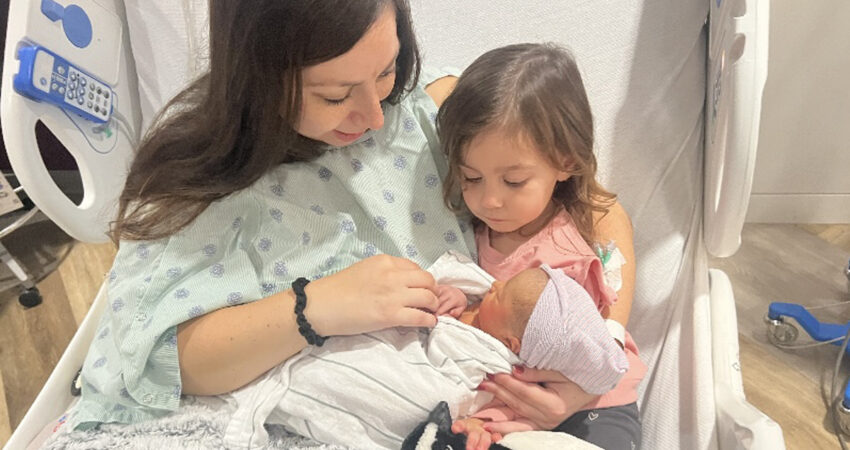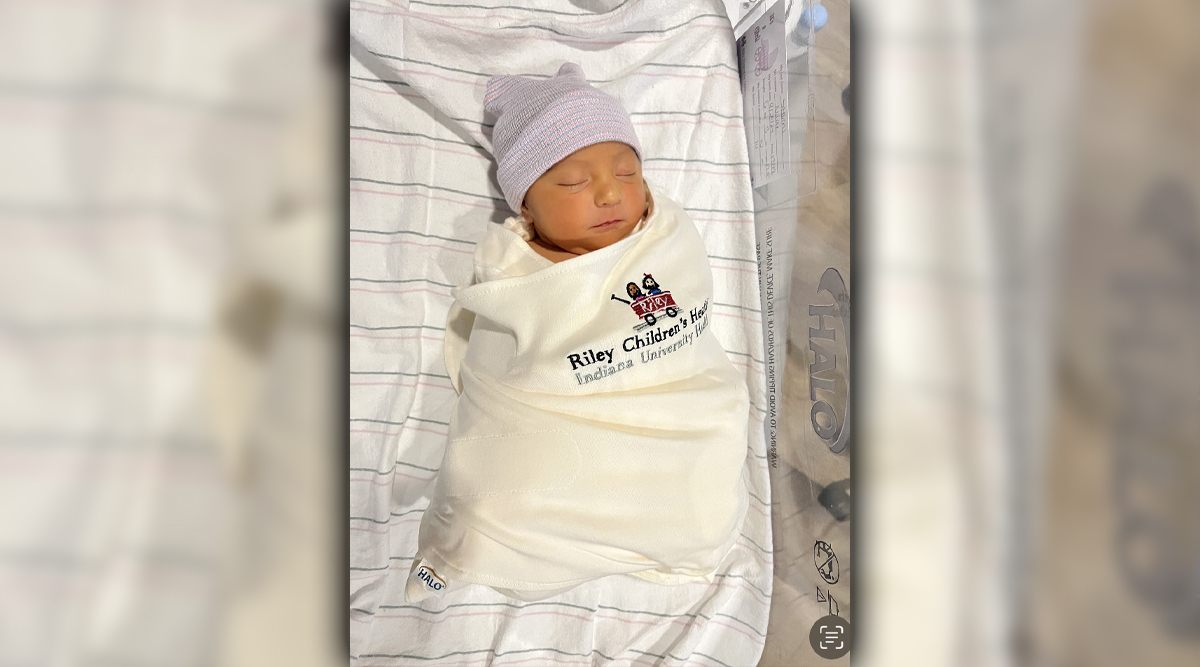
A team member finds expertise and support to guide her through a rocky pregnancy and now invites others to join the Patient and Family Advisory Council.
By Maureen Gilmer, Riley Children’s Health senior writer, mgilmer1@iuhealth.org
Nicole Stevens had a seemingly perfect pregnancy and birth of her first daughter, Myla. But it was when she was pregnant with her second that things took a turn.
A blood test early on revealed that Stevens was positive for hemolytic disease, a condition in which the baby's red blood cells break down too quickly. This occurs due to an incompatibility between the mother's and baby's blood types.
The mother's immune system may produce antibodies that attack the baby's red blood cells, which can lead to severe anemia and jaundice for the baby. It worsens with subsequent pregnancies.
Stevens, a project coordinator for the Patient Experience Team at Riley Hospital for Children, was referred to Riley’s Maternal-Fetal Medicine team, which monitored her throughout the pregnancy.
At about 25 weeks’ gestation, testing showed baby Bella was starting to become anemic, and at 34 weeks, Riley fetal surgeon Dr. Hiba Mustafa delivered a blood transfusion to the baby in utero.
When the unborn baby became severely anemic again two weeks later, the decision was made to deliver Bella via C-section.

Bella was safely delivered, but within hours she was severely jaundiced and anemic and was taken to the NICU, where she spent a month. After she was discharged, she continued to be seen by the hematology clinic in the Riley Outpatient Center, undergoing multiple blood transfusions. In January, all of Bella’s bloodwork came back normal as the antibodies that had caused so much distress were finally flushed out of her system.

Bella is now 8 months old and healthy, but her mom is leaning on her own Riley experience to frame her new role leading Riley’s Patient and Family Advisory Council.
The council paused activity during COVID but is ramping up again, intent on hearing and responding to the opinions and suggestions of patients and families regarding their experiences with Riley.
“One of the things that stood out the most in our care at Riley was the way the staff, specifically Dr. Jodie Meara, involved my older daughter,” Stevens said. “They let her help ‘examine’ (Bella), and it meant the world to her.”

She also counts her family and her co-workers among a strong support system that carried her through the rocky pregnancy.
Her goal with PFAC is to get a better picture of the care that Riley patients and families experience, so she encourages anyone who currently has, or recently had, a patient treated at Riley to consider joining the council, which will meet virtually each month.
“We’re always striving to do better,” Stevens said. “We love feedback in any capacity.”
To express interest in the council, complete this form, and Stevens will be in touch.






